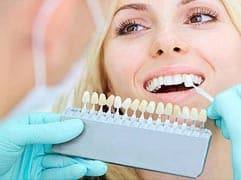Call (515) 277-6358 to schedule your consultation!
Wisdom Teeth Extraction Information
At a certain point in your life (generally between the ages of 17 and 25), you’ll notice that a new set of teeth begin to appear in the back of your mouth—your wisdom teeth. These extra molars can cause a lot of trouble, and will often need to be removed. While it isn’t necessary for absolutely everyone, wisdom teeth extraction definitely is something that you’ll want to speak with your dentist about as soon as they come up on an x-ray.
Why Undergo a Wisdom Tooth Extraction?
Wisdom teeth can end up causing a series of health issues if they are not removed promptly. While some wisdom teeth come in fine, it’s still important to consider removing your wisdom teeth preemptively to ensure that oral health issues don’t develop due to complications with your wisdom teeth. This is something that you’ll want to speak with your dentist about. Some of the health issues that may occur with wisdom teeth include:
- Teeth coming it at the wrong angle, and pressing against healthy teeth.
- Cavities or gum disease caused by the inability to reach the wisdom teeth properly for cleaning.
- Damage to healthy teeth.
- Infection of the tooth and gums.
Keep in mind that some wisdom teeth will be beneath the gum line and can be difficult to see. When your dentist x-rays your mouth during a routine checkup, they will be able to see the extra teeth coming in, and will be able to treat them before they become an issue.
What Do I Need to Do Before the Procedure?
Before a wisdom tooth extraction, you’ll meet with the oral surgeon that is performing the procedure. Once you do, they will ask you about:
- Any drugs that you may be currently taking.
- Current health problems.
- What to do post-care.
- What forms of anesthesia are available for your procedure (you may be put to sleep or simply numbed during the procedure).
It is at this point that you can ask any further questions you may have.
What Is the Procedure Like?
Wisdom tooth extraction surgery generally takes less than an hour.
During this time, you will be numbed and possibly sedated. Once the numbing and sedation (if required) has taken effect, the surgeon will cut the bones and/or gums to remove the wisdom teeth or tooth. The wound or wounds will then be stitched up with stitches that will dissolve on their own in a few days. Gauze pads will be provided to soak up blood.
What Do I Need to Know About Post-Procedure Care?
After the surgery, it is important to eat softer foods, and ice the area to reduce swelling. You may also be prescribed pain killers to help with the pain. On the second day, make sure to begin brushing your teeth again—but avoid any blood clots while doing so. Make sure you don’t drink through a straw, or eat anything hard, sticky or crunchy. A wisdom tooth extraction is a very common procedure. Within an hour it will be complete, and you won’t have to worry about damage caused by your wisdom teeth coming in.
Are you a smoker? Here's some information on whether or not you can smoke after a tooth extraction.
Actual Patient Reviews
We have so many terrific reviews it's impossible for us to list them all! Thanks for supporting Iowa Dental Group with your gratitude.
Dental Office Location
Iowa Dental Group prides ourselves in offering the highest quality dentistry at a fair and reasonable fee.
Des Moines, Ia 50311
(515) 277-6358
iowadentalgroup@hotmail.com
https://www.iowadentalgroup.com
Iowa Dental Group Contact Form
Our Des Moines' Dentists Bob Margeas DDS & Nicholas Economos are eager to help provide any answers you may have. Contact us today regarding optimal oral health.
Dentist Office Hours
Our Dentists look forward to answering any dentistry related questions or dental concerns you may have regarding your overall oral health and smile.
Office Hours
| Monday: | 7:30am - 5:00pm |
| Tuesday: | 7:30am - 5:00pm |
| Wednesday: | 7:30am - 5:00pm |
| Thursday: | 7:30am - 5:00pm |
| Friday: | Closed |
| Saturday: | Closed |
| Sunday: | Closed |
















